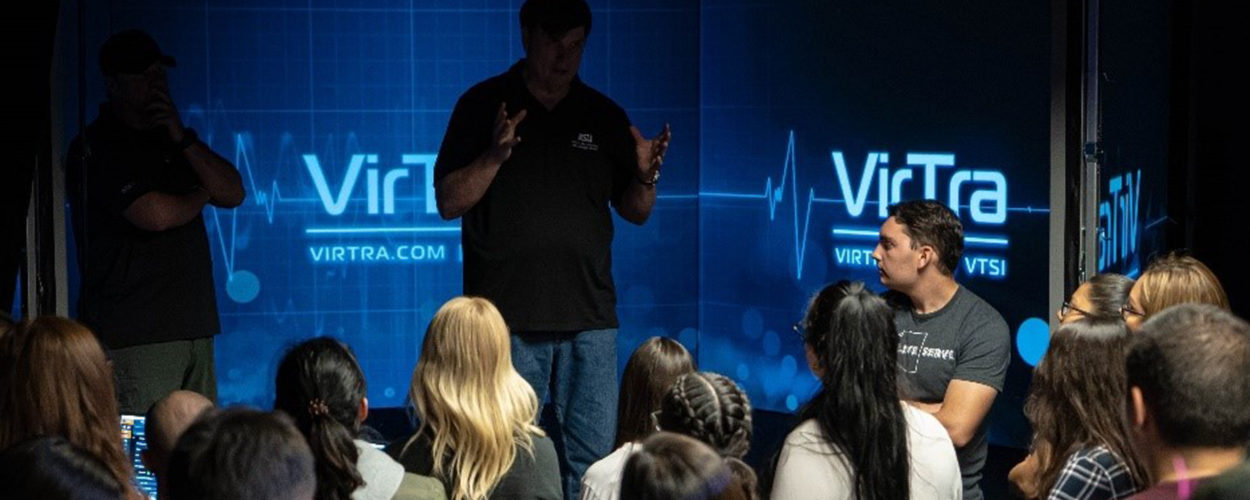
A total of 63 students enrolled in the Criminology and Criminal Justice program at Arizona State University visited VirTra’s headquarters last year to experience the technology in action. The students eagerly crowded around the five-screen V-300® to watch as their fellow classmates ran through a scenario. On the opposite side of the room, more students were practicing marksmanship on the three-screen V-180®.
ASU & VirTra Criminal Justice Partnership
ASU has visited VirTra for the past three years, allowing their criminal justice students to learn from hands-on experience rather than through a lecture. Professor of Practice Bob Robson and Associate Professor Dr. Danielle Wallace watched as their students enjoyed interacting with the simulators, knowing that this experience brought a lot of understanding to their studies. Both professors know some of these students – mostly juniors and seniors – could become officers one day and believe that experiencing reality-based training scenarios and the stress they bring will prepare them for the future.
“Taking students through the scenarios that real police officers go through…For them to have this experience early on gives them a better sense of what reality is all about” said Professor Robson, noting that the students in his class may end up in law enforcement or as attorneys. “My class is a Police Accountability course, and this is the perfect place to learn.”
How Criminal Justice Students Benefit
Criminal Justice students – such as the class from ASU – can benefit tremendously from VirTra’s training curriculum and simulators. Training provided by a simulator cannot be replicated through a lecture. Students must experience what it is like on the field using technology that brings them as close to real life as it gets. “I want them to interact,” said Professor Robson. “They’ve never had an opportunity to learn the stresses and strains that a police officer has to go under with only seconds to think.”
Universities may have the opportunity to purchase a simulator through state contracts or police training funds. It is applicable for both university police and classroom use, as both future and current law enforcement officials can train. Whether instructors choose to put students through heart-racing scenarios or practice marksmanship, Criminal Justice students can learn best in a simulated environment that allows them to experience stress inoculation and practice judgmental use-of-force decision making to better understand life on the force.
Recently Published
Join Our Newsletter







